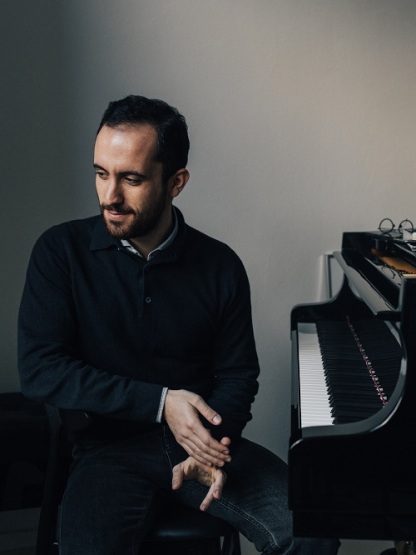Igor Levit, piano
Symphony Center
Chicago, IL
March 12, 2017
Rzewski: Dreams, Part II
Beethoven: Diabelli Variations, Op. 120
Encore:
Shostakovich: Waltz-Scherzo, No. 5 from Dances of the Dolls, Op. 91b
One of the most exciting Russian pianists of his generation, Igor Levit made a somewhat belated Chicago debut in Symphony Center’s Sunday afternoon piano series. A thoughtful program comprised of a recent work of Frederic Rzewski paired with Beethoven’s mighty Diabelli Variations made for a probing, rigorous recital, and the stellar reputation that preceded Levit lived up to expectation.

Inspired by the 1990 Akira Kurosawa film Yume, Rzewski was moved to compose his first book of Dreams (the English rendering of the film’s Japanese title) in 2012-13, followed by a second book of four further works in 2014. Part II was composed expressly for Levit who gave the world premiere in 2015, and one couldn’t have asked for a more convincing interpreter of this substantial 35-minute work. The opening “Bells” began in the depths of the piano’s lowest register, to my ears suggesting the beginning of Liszt’s Funérailles, and proceeded at a glacial pace of imposing power. “Fireflies” was a lighter affair, with a series of trills bringing the titular insects to life, reminiscent of Scriabin’s F sharp major etude from Op. 42 (nicknamed after a much less pleasant insect – the mosquito), and in due course building to wild intensity.
“Ruins” was a chaconne of sorts, its contrapuntal intricacies looking to the Baroque as a guiding light, and a particularly striking effect was achieved with tremolos in both hands. The concluding “Wake Up” was quintessential Rzewski in its appropriation of folk music, here the song of the same title by Woody Guthrie. The Guthrie was first introduced in the right hand alone, and appearing again at the very end, but with jarring tone clusters, and movement’s climaxes certainly served to wake one up indeed.
The incomparable Diabelli Variations of Beethoven made for a logical juxtaposition as they were of deep inspiration to Rzewski in his own monumental set of variations, based on the Chilean protest song The People United Will Never Be Defeated! (and incidentally, local admirers of Rzewski’s piano music will have a chance to see that work performed by Ran Dank at Mandel Hall next month). Levit gave the opening theme a sprightly workout before embarking on the work’s epic trajectory, Beethoven’s compendium of a lifetime’s worth of discoveries in piano technique.
Under Levit’s self-assurance and commanding execution, there was essentially never a dull moment in the hour-long work. The presto of Variation X was given at a mind-boggling velocity, while time was all but suspended in the solemnity of Variation XIV. Deft voicing was achieved in the somber Variation XX, while just minutes later there was much humor to be had in Variation XXII’s interpolation of Mozart’s “Notte e giorno faticar”. Levit clearly delineated the contrapuntal lines of the Fughetta (Variation XXIV), and the rippling effect he created in Variation XXVI was wondrous. The final, slow variations entered the spiritual realm, culminating in the massive Fugue (Variation XXXII), and the closing minuet, seemingly a nostalgic look backwards to the work’s humble beginnings.
After the weight of the Beethoven, some lighter fare was needed. Levit responded in kind with a lone encore, Shostakovich’s “Waltz-Scherzo”, bubbling with an irresistible impish charm.
